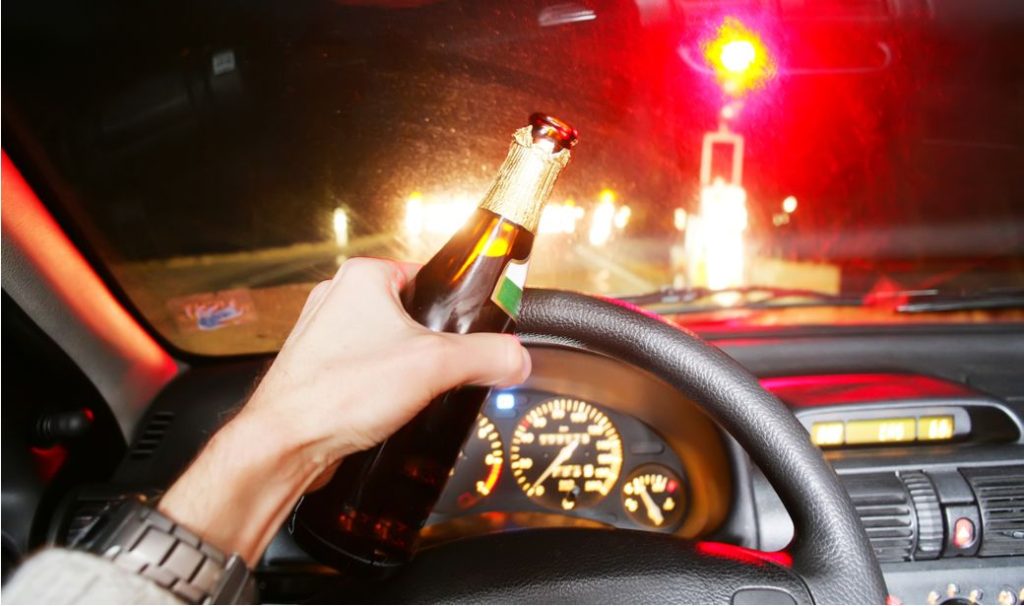West Covina Felony DUI Lawyer
West Covina Felony DUI Attorney
Driving under the influence of alcohol or other drugs, or a combination of the two, is a federal offense. In the state of California, you can be charged with a DUI if you are caught driving with a blood alcohol concentration (BAC) of 0.08% or more. You can also be convicted of a DUI if you are found driving under the influence of other drugs, including marijuana.
DUI charges are unique. For most other crimes, charges need to reach a conviction for there to be any major consequences. However, for DUI cases, certain administrative penalties such as license suspensions and fees are applied regardless of whether the driver is convicted.
No matter how the DUI is charged, however, the consequences and penalties can be strict. If you are charged with a DUI, hiring an experienced West Covina criminal defense lawyer can help ensure all fines and jail time are reduced.

DUI Misdemeanor Charges
A DUI is considered a “wobbler” case in California and can either be charged as a misdemeanor or a felony, depending on several factors. In most states, the first three DUI offenses are charged as misdemeanors. While individuals may not be charged with a felony on any of their first offenses, the penalties and fines can be severe. Because DUIs are a “priorable” offense, the penalties become increasingly stricter for all subsequent convictions. Penalties for DUI convictions include:
First-Time DUI Convictions:
- Fines: $390-$1,000.
- Jail time: 48 hours to six months.
- License suspension: 6 months
- Probation: First-time DUI offenders typically receive a three- to five-year informal probation sentence instead of jail time. Probation includes mandatory DUI school, the length of which is determined by the driver’s blood alcohol content at the time of the incident.
Most judges are lenient with first-time DUI offenders and are likely to assign probation instead of jail time. While first-time offenders usually receive a six-month license suspension, drivers who refuse BAC testing could have their license suspension increased to one year after their first offense. In some instances, judges may grant first-time offenders a restricted license, which would enable them to commute legally to and from work and school.
Second-Time DUI Convictions
- Fines: $390-$1,000
- Jail time: 96 hours minimum—1 year
- License suspension: 2 years suspended license
Third-Time DUI Convictions
- Fines: $1,000-$1,800
- Jail time: 120 days minimum-1 year
- License suspension: 3 years suspended license
Fines for all DUI convictions are likely to include possible “penalty assessment” fees in addition to the conviction fines. These extra fees could elevate the total amount due by thousands of dollars.
When Is a DUI a Felony?
A DUI is a wobbler crime in California, meaning that it can be charged either as a misdemeanor or a felony. A DUI can be charged as a felony for one of three reasons:
- It is the fourth DUI offense within ten years.
- Someone was killed or seriously injured in your DUI accident.
- You have one or more prior felony DUI convictions.
Multiple DUI Convictions
In California, driving under the influence is considered a priorable offense. A priorable offense refers to a crime for which the penalties become harsher for each subsequent conviction. While the first DUI charge may carry a relatively light penalty, the consequences increase in severity for all following DUI charges. If the individual is convicted of three prior DUI charges within ten years, the fourth offense will automatically be charged as a felony.
When a DUI Causes Death
If a driver caused death or serious harm to another person due to driving recklessly or negligently while intoxicated, it becomes even more serious. Federal prosecutors could bring felony charges against them using one of four California state codes:
- California Vehicle Code 23513 VC—DUI causes serious injury to another human
Negligent behavior or impaired reaction time leads to the serious injury of another but does not result in death.
- Penal Code 191.5 (a)—Gross vehicular manslaughter while intoxicated
While intoxicated, the driver functions with extreme negligent behavior that causes an accident ending in the death of another. An example of a “grossly negligent act” leading to vehicular manslaughter includes an intoxicated driver driving up on a sidewalk to avoid a traffic jam and hitting a pedestrian.
- Penal Code 191.5 (b)—Vehicular manslaughter while intoxicated
The individual engages in some negligent behavior while driving under the influence. This negligent behavior, such as texting or failure to stop at a stop sign, results in the death of another.
- Penal Code 187 PC—DUI second-degree murder
The driver acts with implied malice. In this instance, “implied malice” does not mean the driver had intentional ill will toward the victim. Rather, the driver acted with “deliberate disregard to human life” and in doing so caused the death of another. The defendant acted with implied malice when:
- The driver intentionally committed the act of driving while intoxicated.
- The driver committed an act knowing it was dangerous to human life.
- The driver acted with deliberate disregard for human life.
Prior Felony DUI Convictions
If an individual commits any DUI, even one with no aggravated consequences, and has one or more prior felony DUI convictions on their record, the current DUI will automatically be charged as a felony.
Which felony charge the prosecution chooses to bring against the defendant depends on the details of each case. The exact penalties and length of sentencing if charges reach a conviction depend on which felonies the individual is charged with.
Affordable Felony DUI Criminal Defense Attorney in West Covina

Being convicted of a felony DUI can have extreme consequences, including substantial fines, fees, prison time, and loss of certain rights and privileges. There are countless arguments an experienced felony DUI defense lawyer may use to defend a felony DUI case. A DUI attorney can reduce the penalties or even see the charges dropped by proving:
- The arresting officer(s) did not correctly administer the field sobriety test.
- The breathalyzer returned a false BAC reading.
- The driver had certain medical conditions that could give the breathalyzer a false reading.
- There was no probable cause for the DUI stop.
- The defendant was unwillingly intoxicated.
If you face felony DUI charges, you should contact a trusted West Covina felony DUI attorney right away. The Law Office of Daniel P. Flores has over ten years’ experience defending criminal driving cases and has the passion, dedication, and expertise to provide you a solid defense. Call (626) 628-2573 today and request a free consultation.
Request Your
Free Consultation
Fields Marked With An “ * ” Are Required
"*" indicates required fields



